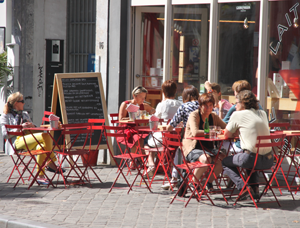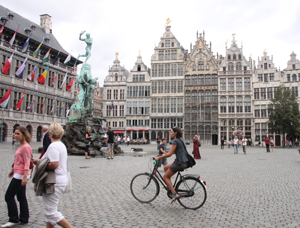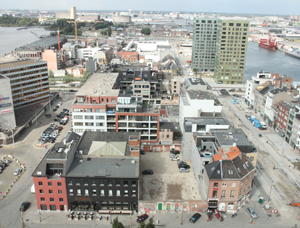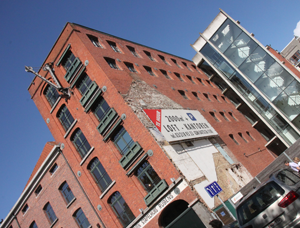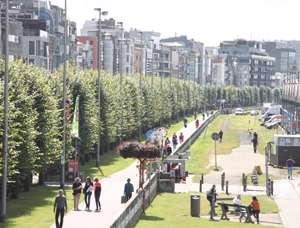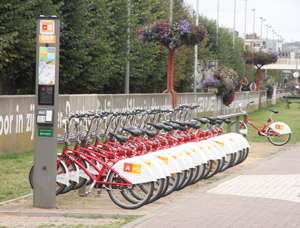Learning from Antwerp
Antwerp, Belgium
17-20 October 2013
Some places are still available to visit European City of the Year Antwerp
Come to study the leading proponent of intelligent incremental urbanism, linking design and placemaking with social and health policy.
This international port and former Olympic host city has been regenerating in a distinctive manner for years, eschewing the excesses of grand projects and iconic mega projects. Antwerp has a wonderful physical legacy as a leading Flemish city, coupled with a contemporary role as a centre for fashion, design and the diamond industry.
Book now if you are interested in learning more about their approach. Find out more about the programme.
Why Antwerp?
From its position as a stronghold on the River Scheldt during Gallo-Roman times to today’s modern European port city, Antwerp’s mixed path has created a city rich in culture and quality. However, Antwerp has had to approach many challenges over recent years, including population exodus and subsequent desolation, socio-economic instability, cultural cohesion, together with a delicate regional and national relationship.
Following a sustained period of decline, the city’s trajectory began to change during the 1990s, leading to the 2003 European Capital of Culture crown. Since then, the city has worked hard to cement long-term and pragmatic thinking into its psyche, capturing the imagination of citizens along the way. They are at an important time in evolution, bridging the half-way mark of a 15-year strategic plan that side-steps political short-termism and delivers combined socio-economic & physical improvement within the existing urban fabric – an approach they have labelled ‘slow urbanism’.
Antwerp is an important exemplar for other towns and cities, especially in terms of commitment to quality, whether in governance, development, or community engagement. This is a forward-looking city that is quietly and assuredly following its own path of self-improvement.
View the Academy Assessment of Antwerp & image gallery
Programme
To make the most of the organised visits, participants should aim to arrive in Antwerp on the afternoon / evening of Thursday 17 October where the group will join for an informal meal. The main programme will take place on Friday 18 and Saturday 19 October, plus there will be optional additional activities on Sunday 20 October.
The programme will take in some of Antwerp’s most important interventions, including those in the city centre around the Sailor’s Quarter, Falcon Square housing projects, Spoor Noord, as well as new communities in the peripheries. View the outline programme here
Booking
Places are strictly limited to ensure a high quality of learning. Booking will be on a first-come first-served basis. For each participant there is an attendance fee plus the cost of your accommodation, travel and meals. Participants are to make their own travel arrangements.
To book: please contact Linda Gledstone on lg@academyofurbanism.org.uk or +44 (0) 20 7251 8777.
Costs
Academicians £75+VAT
Non-Academicians £115+VAT
Young Urbanists £50+VAT
Accommodation
The Academy has secured preferential rates at the centrally located Different Hotel, where we can reserve rooms on your behalf. The rooms are 80€ per room per night to be paid on arrival.
Travel
The Eurostar train to Brussels is from £69 return – Antwerp is a 20 minute train journey from Brussels. Please remember that both flight prices are cheapest when booking in advance. We recommend that you visit http://www.kayak.co.uk/ to review flight prices.
To book: please contact Linda Gledstone on lg@academyofurbanism.org.uk or +44 (0) 20 7251 8777.
Header image of Antwerp: City of Antwerp
All other images provided by John Thompson and the City of Antwerp
